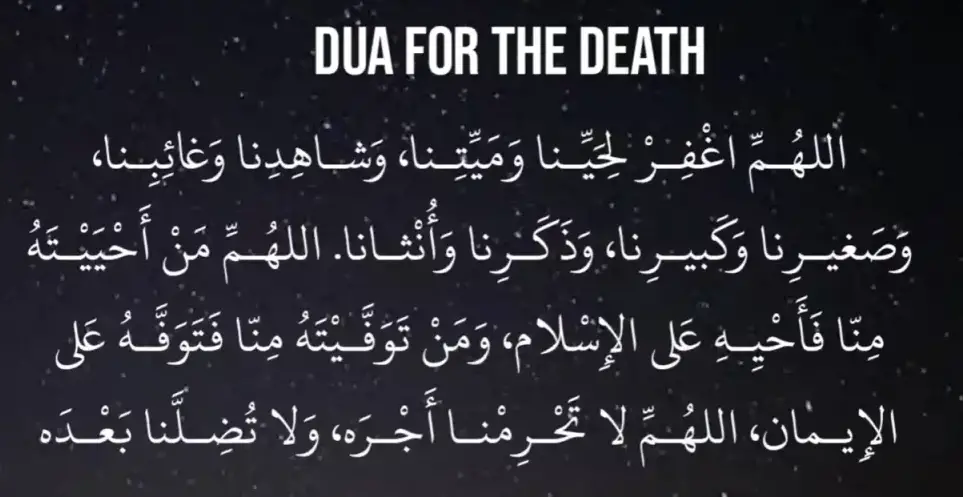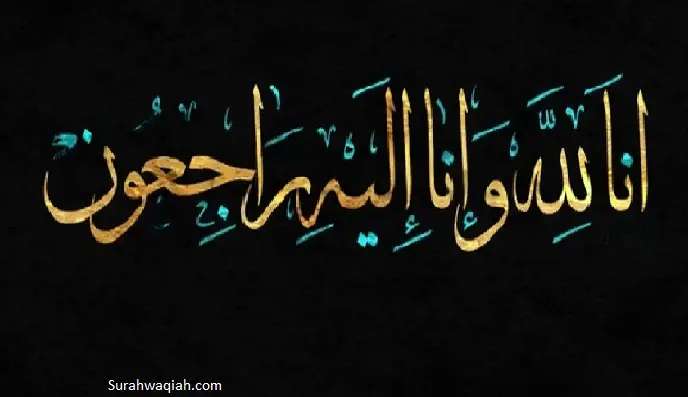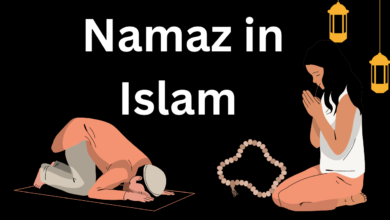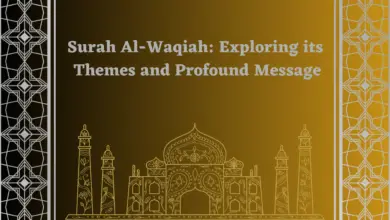
Dua for Dead Person in Islam
Dua for the dead person in Islam is a form of supplication or prayer made on behalf of a deceased individual. It is a way to seek Allah’s mercy, forgiveness, and blessings for the soul of the departed person.

Introduction
In Islam, the concept of prayer, or “dua,” holds immense significance. Dua is a means of communicating with Allah, seeking His guidance, mercy, and blessings. One of the most noble and compassionate acts of dua is praying for the deceased. Offering dua for a departed soul is not only a way to remember and honor them but also an expression of our love, compassion, and concern for their well-being in the hereafter.
Islamic Perspective on Death
In Islam, death is viewed as a transitional phase rather than an end. It marks the journey of the soul from this temporary world to the eternal hereafter. The life of a person in the afterlife is determined by their actions and faith in this world. Therefore, the importance of praying for the deceased cannot be overstated, as it is believed to have a positive impact on their final abode.
The Significance of Dua for the Deceased
- A Form of Charity (Sadaqah) Offering dua for the deceased is considered an act of charity (sadaqah) in Islam. Just as giving to the poor or helping the needy is rewarded, praying for the deceased is a way to extend one’s kindness beyond the realm of the living. This act of sadaqah can benefit the departed soul, as the reward for your dua is believed to reach them.
- Consolation for the Bereaved Losing a loved one is an emotionally challenging experience. Offering dua for the deceased not only benefits the departed soul but also provides comfort to the bereaved. It can help ease the pain and grief, knowing that you are actively supplicating for their loved one’s well-being in the afterlife.
- Intercession on the Day of Judgment Muslims believe that on the Day of Judgment, our deeds will be weighed, and we will be held accountable for our actions. The Prophet Muhammad (peace be upon him) is reported to have said that when a person dies, their deeds come to an end except for three things: ongoing charity, beneficial knowledge, and righteous offspring who pray for them. Offering dua for the deceased falls under this category of ongoing charity, which can intercede on their behalf when they face judgment.
How to Perform Dua for the Deceased
- Intentions (Niyyah) Before making dua for the deceased, it is essential to have the right intentions. Your dua should be solely for the sake of Allah and to seek His mercy for the departed soul. Your niyyah (intention) should be sincere and pure.
- Choose the Right Time Although you can make dua for the deceased at any time, it is recommended to do so during special occasions such as Fridays, during the last third of the night, and on significant Islamic days like Eid or the Day of Arafah. Additionally, making dua after performing acts of worship, such as prayers or reciting Quranic verses, can be especially effective.
- Supplication The dua for the deceased can be in your own words, but there are also specific supplications (duas) mentioned in Islamic tradition. One common dua is “Allahumma ghfir lihayyina wa mayyitina wa shahidina wa ghā’ibina wa saghīrina wa kabīrina wa dhakarina wa ‘unsā’ina. Allahumma man ahyaitahu minnā fa’ahyihi ‘alā al-islām wa man tawaffaytahu minnā fatawaffahu ‘alā al-īmān” which translates to “O Allah, forgive our living and our dead, those present and those absent, our young and our old, our males and our females. O Allah, whoever You keep alive, let him live in Islam, and whoever You cause to die, let him die in faith.”
- Pray with Sincerity While making dua, it is crucial to pray with a sincere heart and deep faith. Allah listens to the supplications of those who are genuinely seeking His mercy and guidance. Your sincerity and devotion during dua can have a profound impact on its effectiveness.
- Consistency Dua is a continuous process. Continue to make dua for the deceased regularly, especially during significant Islamic events and personal moments of reflection. Consistency reflects your ongoing care and concern for the departed soul.

Conclusion
In Islam, dua for the deceased is an act of love, compassion, and remembrance. It is a way to extend our kindness beyond this world and seek Allah’s mercy and forgiveness for the departed soul. By making dua for the deceased, we not only offer comfort to the grieving but also intercede on behalf of the departed on the Day of Judgment. Remember that the sincerity of your intentions and the depth of your faith are key factors in the effectiveness of your dua. May Allah grant peace and mercy to all the departed souls, and may He accept our supplications on their behalf.
What is dua for the dead person in Islam?
Dua for the dead person in Islam is a form of supplication or prayer made on behalf of a deceased individual. It is a way to seek Allah’s mercy, forgiveness, and blessings for the soul of the departed person.
Why is it important to make dua for the deceased?
Making dua for the deceased is essential in Islam because it is believed to benefit the departed soul in the afterlife. It is a means of intercession on their behalf and a form of ongoing charity (sadaqah).
Who can make dua for a deceased person?
Anyone, including family members, friends, or acquaintances, can make dua for a deceased person. There are no specific restrictions on who can pray for the deceased.
When should you make dua for the deceased?
Dua for the deceased can be made at any time. However, it is recommended to do so during special occasions, such as Fridays, the last third of the night, and on significant Islamic days or after acts of worship, like prayers or reciting Quranic verses.
Is there a specific dua to recite for the deceased?
While you can make dua for the deceased in your own words, there are specific supplications (duas) mentioned in Islamic tradition. One common dua is, “Allahumma ghfir lihayyina wa mayyitina…” (as mentioned in the previous article).
Can you make dua for someone who passed away a long time ago?
Yes, you can make dua for someone who passed away a long time ago. There is no time limit for offering dua for the deceased. In fact, it is a commendable practice to remember and pray for them regularly.
Can you make dua for a non-Muslim who has passed away?
While Muslims are encouraged to make dua for all deceased individuals, it is essential to note that Islamic dua is primarily intended for Muslims. For non-Muslims, you can pray for their guidance and forgiveness in this world while respecting their religious beliefs.
How does dua benefit the deceased in the afterlife?
According to Islamic belief, dua for the deceased can intercede on their behalf on the Day of Judgment. It is a way to seek Allah’s mercy, forgiveness of sins, and elevation of their status in the hereafter.
Is there a specific etiquette for making dua for the deceased?
While there is no strict etiquette, it is recommended to make dua with a sincere heart, facing the qiblah if possible, and raising your hands during supplication. Additionally, offering dua with a clean and humble heart is crucial.
Can you make dua for multiple deceased individuals in one supplication?
Yes, you can make dua for multiple deceased individuals in one supplication. You can mention the names of all the deceased you wish to pray for during your dua.





